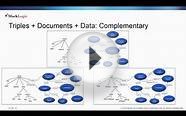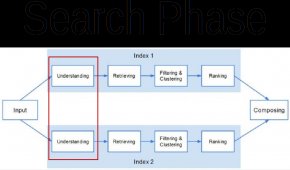What is semantics search?
David Amerland begins with this sentence in the foreword of his book, Google Semantic Search. If you are a long time user of the Internet and, more specifically, the search engines, you can see how the way we look for information has changed over the past few years. We are at a moment in which semantic search, the ability to put typed searches into context, represents the most accurate option for granting answers.
However, before we delve into this new type of search is appropriate to stop and ask the question: What has motivated our change when searching in the Internet?
New Types of Queries
Certainly, the wide range of devices from which we can search represents a determining factor: PCs, laptops, smartphones, tablets, TVs, etc. Also, with the variety of devices, there are different input methods, from typing a word on the keyboard of our computer or making a request directly to voice applications like Siri, Sherpa, Cortana, or Google Now.
 These advances have moved us from former queries like “restaurants in manhattan, ’ to more specific queries such as ‘where to eat Indian food in Manhattan’ or ‘what is the best place to eat Indian food in Manhattan’ .
These advances have moved us from former queries like “restaurants in manhattan, ’ to more specific queries such as ‘where to eat Indian food in Manhattan’ or ‘what is the best place to eat Indian food in Manhattan’ .
We can see two trends in this evolution: an increase in long tail queries and users requiring more precision, so search engines have had to adapt and provide more relevant results.
Search engines understood identifying keywords alone was not enough, instead, they needed to understand how the data was related, both with within the same site and through out the web. This is where the most important change within the search landscape occurs: a progression from the ubiquitous keywords to the increasingly important entities. Words become concepts and search engines evolve into genuine learning machines.
This co-evolution results in what is now known as semantic search.
What is Semantic Search?
For a definition we will use (as so does Google):
Semantic search seeks to improve search accuracy by understanding searcher intent and the contextual meaning of terms as they appear in the searchable dataspace, whether on the Web or within a closed system, to generate more relevant results.
And the definition of :
Semantic search is a data searching technique in a which a search query aims to not only find keywords, but to determine the intent and contextual meaning of the words a person is using for search.
We should stop at two important concepts: intent and context.
Intent, which comes from the user, explicitly states what he or she is looking for. And context could be understood as everything that surrounds a search and makes this go in either direction, i.e., what gives it meaning. Thus, by understanding and connecting intention and context, search engines are able to understand the different queries, both what motivates and what is expected of them.
You might also like














